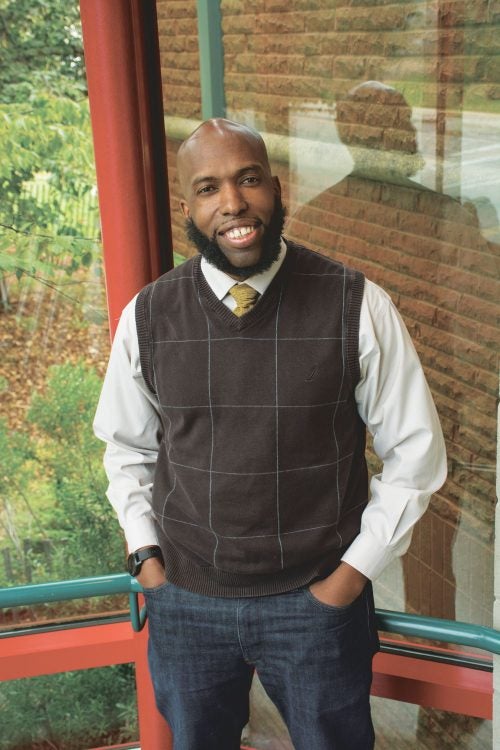
For students struggling in Bryan Dewsbury’s first-year biology classes, the intervention starts before class is over.
Dewsbury monitors email while he’s teaching—to address students’ questions on the spot, sparing them the embarrassment of publicizing their confusion. It’s one pillar of Dewsbury’s “aggressive early intervention system.” He says the key to reducing failure and withdrawal rates in introductory science courses is an inclusive teaching approach that considers students’ diverse needs.
The inclusive teaching approach works especially well with minorities who, historically, struggle with STEM disciplines, Dewsbury says. Research supports this, but he has anecdotal evidence, too. As a graduate student in Florida, he taught first-generation college students, gaining an appreciation for their unique challenges. Some challenges, like socioeconomic pressures, were obvious. Others weren’t. The students’ parents often dictated their career choices; they saw in their children a way to create upward mobility for the whole family—a heavy mantle for a student to bear, Dewsbury notes.
“In my initial semesters as a teaching assistant, I learned the value of teaching someone to believe they can be better than they imagine,” says Dewsbury. “This is what propels ordinary people to do great things.”
Dewsbury says student success comes from getting to know students and adhering to best practices. He’s on to something. Nationally, students in big, introductory math and science courses who struggle often withdraw or receive failing grades, driving them out of intended fields of study. A 2014 New York Times article reported that at four-year colleges, “28 percent of students set out as math, engineering, and science majors, but only 16 percent of bachelor’s degrees are awarded in those fields.” It noted that the University of California, Davis, and the University of Colorado abandoned the lecture model typical of large introductory courses in favor of active learning and in-class group work. The results: improved student performance, sometimes by as much as 50 percent more than students in traditional classes.
In Dewsbury’s introductory biology classes, the withdrawal and failure rate has been as low as 6 percent. His URI students, he says, are “a remarkably diverse group in every way possible. The opportunity to facilitate their growth has taught me incredible things about the human experience.” •

Dr. Dewsbury has so much passion for the work he does and truly believes in his students. He is an amazing educator and mentor.